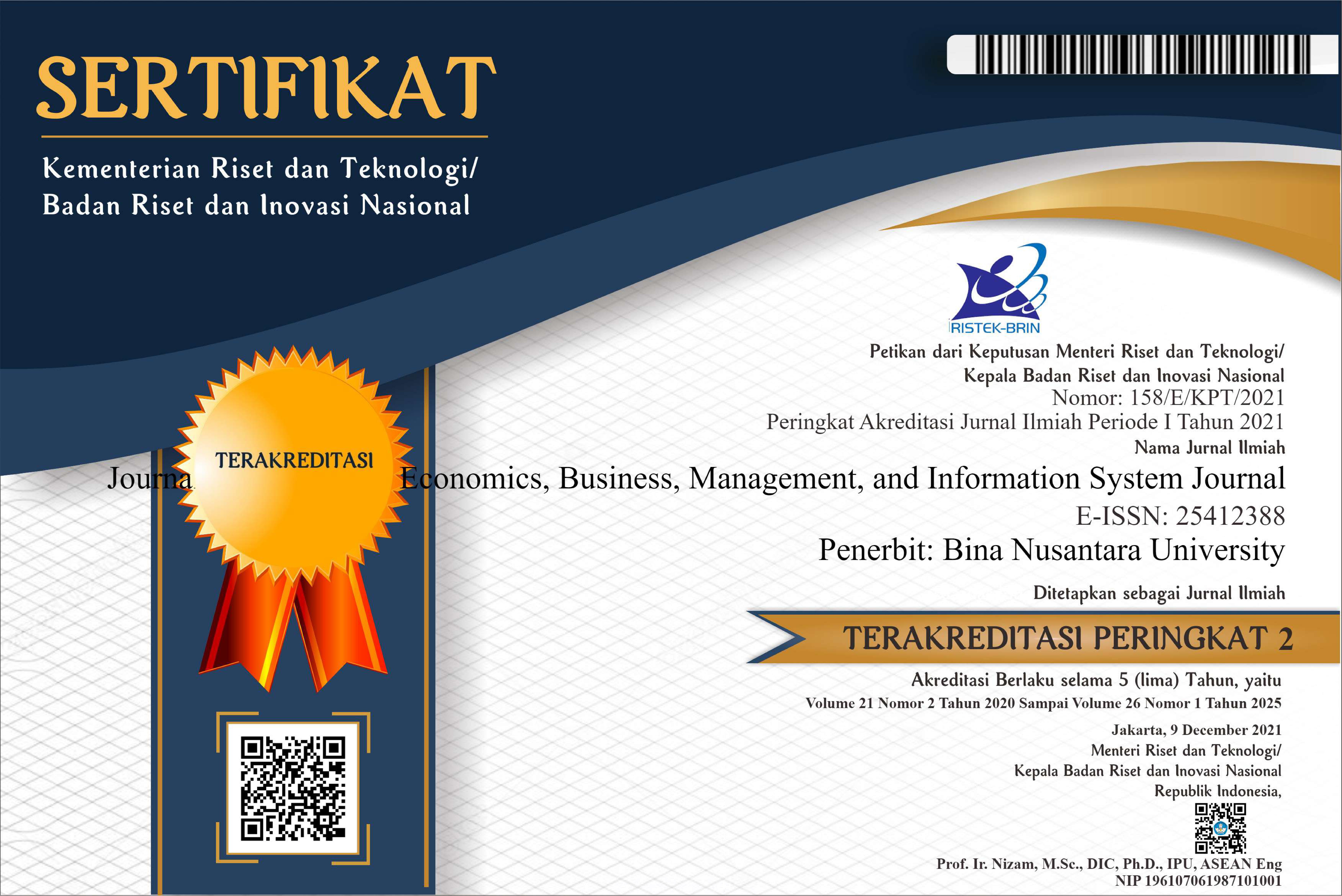Expatriates Perceptions toward Hofstede’s Indonesia Cultural Dimensions
DOI:
https://doi.org/10.21512/tw.v18i2.3734Keywords:
expatriates, cross-cultural management, international human resource management, Hofstede’s cultural dimensionsAbstract
The purpose of this research was to explore the experiences of expatriates in Indonesia, related to Hofstede’s Indonesia cultural dimensions. This study applied a phenomenological qualitative study and used purposive sampling to select the participants. Data were gathered using the semi-structured interview with appointments set before the meeting. The interviews were conducted on an individual basis and were recorded. Then, the data were transcribed and analyzed through coding and categorizing until sets of themes occurred. The results show that the majority of participants agree Indonesia has collectivism and low uncertainty avoidance culture. Meanwhile, the expatriates’ experiences toward high power distance dimension in Indonesia vary.Plum Analytics
References
Brewer, P. & Venaik, S. (2011). Individualism–Collectivism in Hofstede and GLOBE. Journal of International Business Studies, 42(3), 436–445. https://doi.org/10.1057/jibs.2010.62.
Brock, D. M., Shenkar, O., Shoham, A., & Siscovick, I. C. (2008). National Culture and Expatriate Deployment. Journal of International Business Studies, 39(8), 1293–1309. https://doi.org/10.1057/palgrave.jibs.8400361.
Brookfield Global Relocation Services. (2016). Breakthrough to the Future of Global Talent Mobility: 2016 Global Mobility Trends Survey. Retrieved from http://globalmobilitytrends.bgrs.com/assets2016/downloads/Full-Report-Brookfield-GRS-2016-Global-Mobility-Trends-Survey.pdf.
Center, T. H. (2015). The 6 dimensions of national culture. Retrieved from http://geert-hofstede.com/national-culture.html.
Dartey-Baah, K. (2013). The Cultural Approach to the Management of the International Human Resource: An Analysis of Hofstede’s Cultural Dimensions. International Journal of Business Administration, 4(2), 39-45. https://doi.org/10.5430/ijba.v4n2p39.
Flick, U. (2009). An introduction to qualitative research. California, US: SAGE Publications.
Hofstede, G. (2010). Dimension Data Matrix. Retrieved from http://geerthofstede.com/research-and-vsm/dimension-data-matrix/.
Hofstede, G. (2011). Dimensionalizing Cultures : The Hofstede Model in Context. Online Readings in Psychology and Culture, 2(1), 1–26. http://dx.doi.org/10.9707/2307-0919.1014.
Hofstede, G. (2013). Country Comparison - Indonesia. Retrieved from https://www.geert-hofstede.com/indonesia.html.
Ly, A. (2013). A critical discussion of Hofstede ’ s concept of Power. SYNAPS, 28(2013), 51–66.
Minkov, M., & Hofstede, G. (2012). Hofstede’s Fifth Dimension: New Evidence From the World Values Survey. Journal of Cross-Cultural Psychology, 43(1), 3–14. https://doi.org/10.1177/0022022110388567.
Saunders, M., Lewis, P., & Thornhill, A. (2015). Research Methods for Business Students. London, UK: Pearson Education.
Shimoda, Y. (2017). Transnational Organizations and Cross-Cultural Workplaces. New York, US: Palgrave Macmillan.
Shimoda, Y. (2013). Talk, trust and information flow: work relationships between Japanese expatriate and host national employees in Indonesia. The International Journal of Human Resource Management, 24(20), 3853–3871. https://doi.org/10.1080/09585192.2013.781523.
Sluyterman, K. E. (2013). Dutch Enterprise in the 20th Century: Business Strategies in a Small Open Economy. London: Routledge. https://doi.org/10.4324/9780203023167.
Venaik, S., & Brewer, P. (2010). Avoiding uncertainty in Hofstede and GLOBE. Journal of International Business Studies, 41(8), 1294–1315. https://doi.org/10.1057/jibs.2009.96.
Downloads
Published
Issue
Section
License
Authors who publish with this journal agree to the following terms:
a. Authors retain copyright and grant the journal right of first publication with the work simultaneously licensed under a Creative Commons Attribution License - Share Alike that allows others to share the work with an acknowledgment of the work's authorship and initial publication in this journal.
b. Authors are able to enter into separate, additional contractual arrangements for the non-exclusive distribution of the journal's published version of the work (e.g., post it to an institutional repository or publish it in a book), with an acknowledgment of its initial publication in this journal.
c. Authors are permitted and encouraged to post their work online (e.g., in institutional repositories or on their website) prior to and during the submission process, as it can lead to productive exchanges, as well as earlier and greater citation of published work.
USER RIGHTS
All articles published Open Access will be immediately and permanently free for everyone to read and download. We are continuously working with our author communities to select the best choice of license options, currently being defined for this journal as follows: Creative Commons Attribution-Share Alike (CC BY-SA)

















